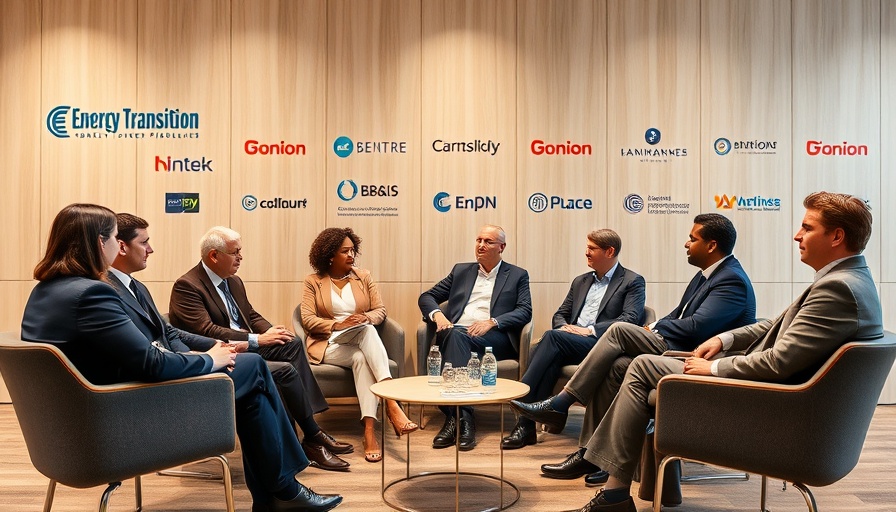
The Urgency of Energy Transition in South Africa
South Africa stands at a pivotal moment—an intersection between energy scarcity and sustainable innovation. As the nation grapples with severe energy crises, characterized by chronic load shedding and dependence on coal-fired power, the discourse turns sharply towards renewable solutions. The recent Solar Power Africa Conference in Cape Town highlighted solar energy and battery storage as critical components of a just energy transition. Industry leaders, including SUNGROW, touted the role of advanced energy technologies in shaping a more resilient energy landscape.
Diving into Solar Power and Battery Storage Technologies
At the heart of discussions was the synergy between solar power and battery storage. Experts underscored advances in battery technologies that promise not only efficiency but affordability, paving the way for greater accessibility to renewable energy. Prinaven Naidoo from SUNGROW spoke about transformative upgrades, such as enhancing lithium-ion batteries from 280Ah to 314Ah, which have bolstered energy storage solutions. Such improvements allow for compact integration of substantial energy systems, significantly benefitting both residential and commercial applications.
Examining the Current Energy Landscape
South Africa's energy mix predominantly relies on Eskom, a power utility fraught with challenges. The country’s reliance on outdated coal-fired power plants contributes to crippling carbon emissions, exacerbating climate change impacts. There’s a call to action for the government to accelerate its Integrated Resource Plan (IRP), effectively fostering an environment conducive to renewables. The growth of Independent Power Producers (IPPs) in the renewable sector is testament to this necessary shift as they complement efforts to enhance energy security and mitigate energy poverty.
What Future Holds for Energy Storage
Experts predict a continued escalation in energy storage deployment. Recent trends showcase a rise in projects focusing on leveraging excess solar generation through integrated energy storage systems. SUNGROW’s liquid-cooled energy storage solutions particularly cater to high-temperature environments, ensuring optimal performance even under challenging conditions. This adaptability positions them favorably in a market eager for reliable solutions to enhance grid stability.
Collaborative Efforts for Energy Innovation
The future of South Africa's energy landscape lies in collaborative innovation. Post-conference, SUNGROW aims to foster partnerships with local distributors to broaden access to its innovative technologies. Collaborations with Engineering, Procurement, and Construction (EPC) firms will likely streamline the implementation of sustainable energy solutions across the continent. Such efforts emphasize the need for community engagement and capacity building, vital for cementing a robust energy foundation.
Embracing a Sustainable Energy Future
As the sun rises over the African continent, its rays symbolize hope and potential—a testament to the transformative power of solar energy. The initiatives discussed at the Solar Power Africa Conference advocate for a sustained commitment to renewables that not only curtail greenhouse gas emissions but also enhance social equity and energy access across all demographics. This transition represents a profound opportunity for economic revitalization through green jobs and sustainable development.
Your Role in the Transition Towards Renewable Energy
With increasing awareness about the significance of renewable energy, professionals have a unique position to influence change. Engaging in dialogues about climate policy and advocating for green technologies can propel South Africa’s energy narrative towards sustainability. Moreover, individual actions, such as choosing renewable solutions for homes and businesses, resonate well with the broader goals of decarbonization and addressing climate change.
Conclusion
Amidst the challenges posed by energy shortages and climate change, the pathway to a sustainable energy future is illuminated by solar power and battery storage. The ability for South Africa to navigate this transition effectively hinges on innovation, collaboration, and commitment to renewable energy. Engaging in the energy discourse is crucial, and professionals are encouraged to champion initiatives that support sustainable development and transform the energy landscape for future generations.
 Add Row
Add Row  Add
Add 




Write A Comment